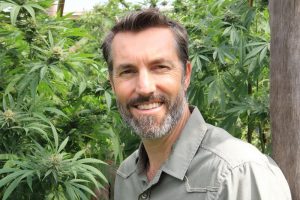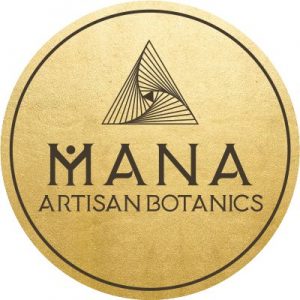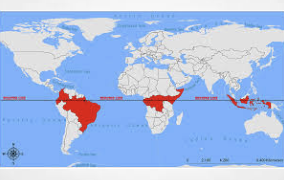Mana is the first CBD company in the world to enroll in rePurpose Global’s “One for One Impact Guarantee Program” and has committed to funding the collection, processing, and reuse of one pound of ocean-bound plastic waste for every product it sells.
If you wish to re-publish this story please do so with following accreditation
AUTHOR: Heather Allman
PUBLISHER: CANNABIS LAW REPORT
Mana Artisan Botanics: The First Plastic Negative Cannabis Company
The beast in this scenario is cannabis sustainability, and the distinct lack thereof. The market for change is wide open, and here’s the perspective and vision of one company who is raising the stakes for other sustainability: Mana Botanics
COMPANY HIGHLIGHTS
Mana Artisan Botanics is looking to inspire others in the CBD/cannabis industry to fight climate change by becoming the first plastic negative CBD company in the U.S.
Through this certification, the company is furthering its mission of infusing “aloha”– meaning love, affection, compassion, and grace– and sustainability into everything it does.
Mana is the first CBD company in the world to enroll in rePurpose Global’s “One for One Impact Guarantee Program” and has committed to funding the collection, processing, and reuse of one pound of ocean-bound plastic waste for every product it sells.
Additional ways Mana infuses sustainability into its practices include:
- Supporting critical regenerative farming practices that increase biodiversity, bolster the health of the soil, and do not compromise the health of the farmers.
- Sourcing the majority of its ingredients from local farmers in Hawaii to reduce its carbon footprint while supporting the community and local economy
- Using plastic in packaging only when absolutely necessary, such as the outer piece of the dropper, with the intention to be a model for tech innovation, sustainability, and financial success in the cannabis space.
INTERVIEW WITH STEVE SAKALA, MANA’S FOUNDER AND DIRECTOR OF OPERATIONS & AGRICULTURE
Will other cannabis companies follow the lead of Mana Botanics in helping to ease the waste burden the cannabis industry puts on the Earth?
On October 26, 2020, I talked with Steve Sakala, Founder and Director of Operations & Agriculture at Mana Artisan Botanics. Here are his thoughts on cannabis sustainability, innovation, and becoming the very first plastic negative Cannabis company in the world.
CANNABIS LAW REPORT: Do you have a company tagline, or favorite quote?
Steve Sakala: We have been told by many in the industry that we have the best tasting oils on the market. So we use that as a tagline often. We also like to say all of our products are “infused with Aloha”!
CLR: How did you get into the cannabis space?
Steve Sakala: I’ve been a cannabis activist from a young age. I worked on the 1994 California Hemp and Medical Cannabis Initiative knowing that hemp/cannabis could act as a major solution to many of our planet’s challenges. We were not successful that year, however, just two years later we set history with the passing of Act 215 in California.
In Hawaii, I have been active in Agriculture policy and politics since arriving here in 2006. As a former president of the local chapter of Hawaii Farmers Union United, I lobbied heavily for the dispensary law that passed in 2015. Unfortunately, that law was geared towards consolidating the wealth into only a few companies’ hands so it was then that I decided to start Hawaii’s first CBD company.
CLR: Why renewability and sustainability focus specifically?
Steve Sakala: I became a strong proponent of all things sustainable immediately after high school and during my time at community college.
I had some very inspirational teachers that took a science-based approach to show many of the challenges that we were facing with resource use and extraction.
It was then I became passionate about working towards solutions through the study and implementation of sustainable technology as well as practices.
After spending almost four years living in West Africa it was clear to me that agriculture was a foundational component to all cultures and until we created sustainable agriculture practices globally we would struggle to thrive as humans.
I’ve been on a mission to promote and create sustainable/regenerative agriculture systems ever since.
CLR: Speaking of focus, what is your view of current cannabis sustainability, or lack thereof.
Steve Sakala: The lack of sustainable practices in the cannabis industry has always been a disappointment for me. t is important to focus on the opportunity for the cannabis industry to become a model for sustainability, which is why
I hope to mold Mana into that example for the industry. I often say that the cannabis industry is perceived as a “green” industry but that is a major misnomer. Having been a grower in both California and Hawaii I know how much chemical fertilizers and pesticides are used in the growing of most cannabis.
I often wonder why more people aren’t seeking out organic/sustainable cannabis for their own health?
Beyond the chemical inputs, the amount of waste created in the industry is absolutely astonishing! Now with large scale hemp….
CLR: Do any states include a sustainability and/or renewability component in their Cannabis legislation, to your knowledge?
Steve Sakala: I wish this was the case. We lobbied hard to get some of that included in Hawaii’s hemp and cannabis dispensary laws without much luck.
Some states require detailed testing and it was my hope with that testing requirement we would see an increased use of organic agriculture.
However, that has not been the case. We have seen a reduction of some harmful pesticides though, which is a step in the right direction.
CLR: Do you think it should be a required component of any state’s medical cannabis regulatory framework?
Steve Sakala: From a professional standpoint it’s difficult to legislate sustainability practices, which is why it’s important to educate the end consumer.
At this point, it is really demand that will drive more sustainability in the industry.
Personally, I would say yes to this question. If someone is using cannabis for medicinal use and has a compromised immune system then they should have confidence they are getting a high-quality organic product.
I suppose there could be local government incentives for the cannabis industry to use more renewable energy sources and less plastic, however, it would have to be across all industries and not just the cannabis industry otherwise it would likely be challenged on a legal level.
CLR: Explain to me how you “use Mother Nature as your partner,” so to speak.
Steve Sakala: This is a great question. Firstly, we use only organic ingredients grown under the sun. We give thanks for all the energy the sun provides through photosynthesis.
We also prioritize purchasing ingredients that are regeneratively grown. Crops grown in regenerative agriculture have more nutrients and, therefore, more medicinal properties. By supporting regenerative agriculture, we support systems that mimic nature and leave more than we take out.
This form of biomimicry is using nature as inspiration.
At Mana Botanics, we also combine different plants to encourage natural synergy in our products.
We committed at the outset to be an isolate-free company.
We believe nature knows best and only use whole plant compounds.
CLR: Can you please give me a couple examples of how you’re addressing climate change/ sustainability, and renewability at Mana Botanics?
Steve Sakala: One of our most exciting developments on this front is Mana has become the first cannabis company in the world to be plastic negative!
For every product sold, we have committed to removing one pound of nature-based plastic.
Our mission at Mana Botanics involves being a triple bottom line company where we commit to taking environmental issues as well as the wellbeing of our community into account just as much as making a profit.
Thus, from the beginning of our company, we were looking at how to reduce waste and be as sustainable as possible:
- Almost all of our packaging is compostable.
- We minimized our use of plastic in all of our products.
- By supporting regenerative agriculture, we support land practices that model solutions for climate change and sustainability.
CLR: Give me examples of one easy renewability solution for:
Companies in general, in any industry?
Steve Sakala: Using renewable energy or offsetting carbon footprint. Another easy one is removing all single-use plastics.
Cannabis dispensaries?
Steve Sakala: Committing to only plant-based plastic packaging and supporting organic growers!
End-user cannabis consumers?
Steve Sakala: Commit to supporting organic cannabis products.
CLR: Can you explain how businesses could actually become more profitable by incorporating more renewable and sustainable initiatives and practices?
Steve Sakala: Data shows most consumers are willing to support companies that are environmentally minded.
We have seen tremendous growth in the B Corp sector, which should be a message to all businesses that taking steps towards sustainability is good for the bottom line.
Renewable energy could also be money-saving in the long run depending on the location of your business. Certainly reducing single-use plastic will save on costs over time.
CLR: What specific areas of the cannabis sphere do you view as having the most potential for growth and investment, of time and money?
Steve Sakala: This is a tough question at the moment. It’s an extremely volatile industry in an extremely volatile time.
I suggest looking for growth opportunities with manufacturers that have experience in other industries and good track records. Those that use high-quality ingredients are going to have better staying power in my opinion.
CLR: What one piece advice have you learned along the way that you wish you someone had told you when you first started out?
Steve Sakala: I wish someone had told me how difficult it would be to become a small scale high-quality manufacturer. Start small, work towards profitability, and scale your successes.
CLR: What is one example of a specific mistake you’ve made in your storied cannabis career that you’ve learned and grown from?
Steve Sakala: After we took on early investors, we let them steer too many important decisions out of the gate.
Looking back, we could have saved lots of time and money had we stuck to our values and knowledge base.
I would have also more closely evaluated our skill gaps as a team and brought on the needed team members early to fill those gaps.
CLR: Please detail what you learned and how you grew as a person? as a company?
Steve Sakala: I’m not sure I have enough space here to detail all I’ve learned since starting Mana.
I entered the cannabis space as a grower and really never intended to become a manufacturer.
Yet, when I discovered CBD a decade ago I knew I wanted to spread the word about what this cannabinoid could do for people’s health.
Mana became that vehicle of conversation around health and wellness. Through starting a corporation and becoming an entrepreneur, I have learned a whole new language.
I’ve learned a ton of business skills. I’ve also had to refine the art of being a good leader.
As a company, Mana has had many lessons, including how to scale while retaining our quality. We are continually stretched as a young company that doesn’t have the same traditional avenues for advertising in how to reach our end customers.
The learning continues each day.
CLR: Let’s talk money. How financially feasible is it to be plastic-negative and sustainable for the company?
Steve Sakala: In short, I would say it is extremely financially feasible for most companies to be either plastic neutral or plastic negative as a part of RePurpose Global.
CLR: More importantly, feasability for the end consumer?
Steve Sakala: We did not increase our price a single cent when we decided to become plastic negative. It was just the right decision to make on our part.
Our customers can have the satisfaction of purchasing a high-quality product that also removes nature-bound plastic from the environment.
It’s a win-win for the end consumer!
CLR: Please tell me a bit about —and explain to me— your cost/profit for this type of undertaking… which is huge and commendable by the way!!
Steve Sakala: Thank you!
This was not a profit-driven decision. We do anticipate that being the first cannabis company in the world to be plastic negative will generate us additional media and exposure, which in turn should bring new like-minded customers.
CLR: People-centric vs profit-centric:
- Are they exclusive?
- Steve Sakala: I don’t believe so. By focusing on people, you’re creating more lifespan for a company. You’re also creating loyal customers.
- What is the main reason or reasons that Mana Botanics decided to operate in the cannabis sphere?
Steve Sakala: One of the main reasons I created Mana Botanics with my co-founders was to be a model and inspiration in the industry. We wanted to see if we could use this company platform as a voice for sustainability and regenerative agriculture. A voice of change.
- How do you maintain a balance between people and profits, or your thoughts on the matter of intention.
Steve Sakala: To be honest, we look at making the right choices at each step. It’s our philosophy that when you prioritize your community it makes everyone more successful.
Our intention is to serve health and wellness. Our offering with that intention is really high-quality cannabis-based products infused with Hawaiian botanicals, or as we like to say, “Infused with Aloha”.
CLR: Why is it vitally important to have that balance, especially in the Cannabis business?
Steve Sakala: This is an industry that has the ability to impact millions of people’s lives. To do so in a manner that is ‘pono’, or in right intention by making responsible choices, can also lead to more successful companies and a richer economy.
CLR: What is the mission and vision behind Mana Botanics? How does it align with your personal mission?
Steve Sakala: The mission and vision at Mana has always been to promote health and wellness while supporting regenerative agriculture and the local economy.
Given my long history in the medical cannabis space and my work modeling regenerative agriculture at Honaunau Farm, I have tried to create a company that mirrors my personal mission.
In fact, I don’t believe that I could exist in the corporate world unless I was able to fully align with the vision and mission both on a professional level and a personal level.
CLR: What is your foremost current goal at Mana Botanics?
Steve Sakala: Well, we have a great new partnership with AJ’s grocery stores in Phoenix AZ. We are the exclusive CBD brand and launching shortly. We are working on multiple fronts to make sure that is a resounding success.
CLR: Let’s rewind a bit: Tell me about the 2020 cannabis year to date, and take on the current national cannabis landscape.
Steve Sakala: As for 2020… COVID changed everything.
CLR: With COVID-19, what has been the business impact so far for Mana Botanics? Are you as a company doing anything new or differently?
Steve Sakala: Like most businesses, we have been majorly affected by COVID. Most of our wholesale partners are high end spas like Four Season, Ritz Carlton, etc.
These establishments have been closed since March so that cut out a major part of our income and business.
We, of course, have been pivoting to our solid customer base via content creation for email marketing and working to increase online presence.
CLR: How have things evolved, specifically concerning current Mana Botanics initiatives?
Steve Sakala: As any young company, we are constantly looking to innovate. Besides a large push around our partnership with RePurpose Global, we are planning some new products in 2021 especially those for the spa space and products that help with sleep.
CLR: How do authenticity and consumer trust factor into your current course(s) of action?
Steve Sakala: We know in our industry that trust is an important factor. We committed ourselves to transparency with our ingredients and publish our lab results online to foster that deeper level of trust.
We have also done quite a bit of content to introduce ourselves with blogs and content on the website to hopefully convey this brand represents our lifestyle and not just a business for us. I think this conveys a lot of authenticity to our customers.
CLR: What steps do you currently take to achieve and maintain your own premium reputation —and the reputation of Mana Botanics?
Steve Sakala: Again, our relationship with our farmers and ingredient supply chain is one of the most important things we do to maintain our premium reputation.
Our partnerships with companies like Four Seasons,Ritz Carlton and other high-end establishments also reflect a trusted and high-quality alignment.
Additionally, we are constantly finding new ways to become even more environmentally-friendly, like our new plastic negative certification that was mentioned earlier.
CLR: Generally speaking, what is the biggest challenge in the cannabis market and/or in working in the Cannabis industry, in your opinion?
Steve Sakala: One of the biggest challenges in the cannabis market is the lack of access to traditional marketing avenues like Facebook and Google ads.
CLR: What is the best advice you can offer to other companies and individuals wanting to enter the current U.S. cannabis space?
Steve Sakala: Well, this is a very dynamic space that is also becoming more and more saturated. My advice to anyone thinking of entering the space would be to know which niche they are filling and bring their passion to whatever they do.
Folks need to be ready for the long game. The times of quick in, cash-out have passed, I believe.
CLR: What one thing you do in your line of work that you feel is the very most important, that makes the most impact? Why?
Steve Sakala: In my opinion, the most important thing we do is support regenerative agriculture.
If everyone hasn’t seen the Netflix documentary Kiss the Ground it’s a must-watch to gain perspective on how regenerative farming can be a major solution to climate change and the health of our planet.
Regenerative farming also creates healthier food and thus healthier communities.
“Just because something isn’t being enforced or otherwise emphasized today doesn’t mean the hammer won’t fall tomorrow.”
CLR: What are your plans for the future of cannabis recycling and sustainability?
Steve Sakala: We are looking at pursuing additional certifications that support our commitment to reducing waste and sustainability.
We will of course continue to look at how we can minimize waste in the manufacturing side of our business as well as working to educate consumers on how to reduce, reuse, repurpose, and recycle.
CLR: What would you like the future of cannabis sustainability to look like nationwide?
Steve Sakala: In my ideal world, all cannabis would be grown organically with regenerative practices. It would also be my hope that the cannabis industry could stay in the hands of smaller-scale local businesses and not be taken over by the multinational corporations that are biting at the bit to step in with legalization.
I realize this may be a bit utopian, however, I do feel if the cannabis industry could unite around standard organic/sustainable practices it could become a positive force that influences our industrial food system as well.
Imagine that… after 70 years of prohibition, the cannabis industry commits to being stewards of sacred plant medicine by using organic/regenerative practices in such a way that the food industry would have to adapt to keep up with the rising tide of conscious consumers. 🙂
READING FOR CONTEXT
DOWNLOAD: Use this checklist to ensure any cannabis business remains compliant with the State of California.



























